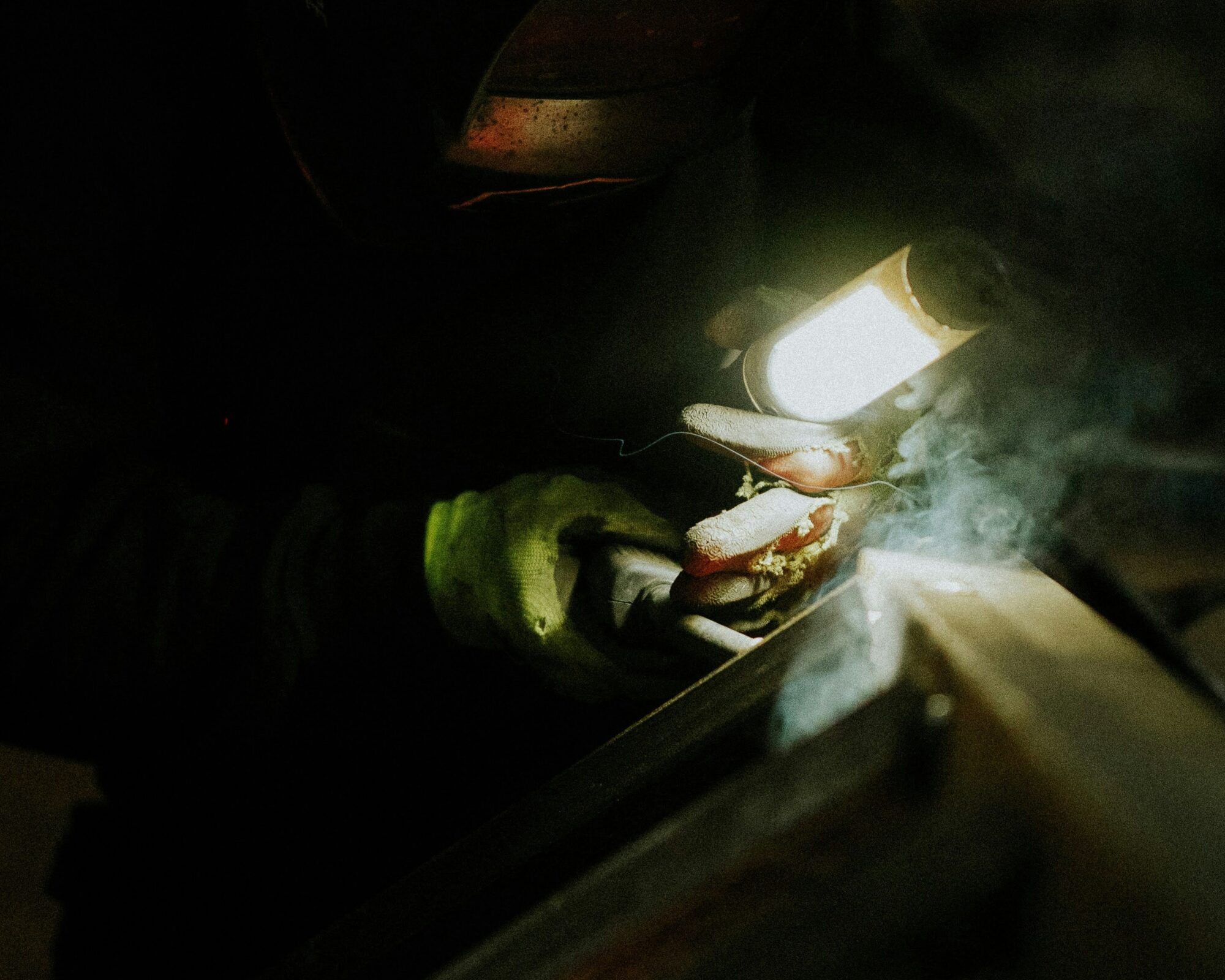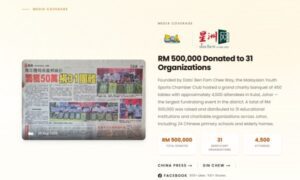In the intricate world of industrial manufacturing, where cutting-edge technology meets the demanding realities of on-site implementation, a select few individuals stand out for their ability to seamlessly navigate complex technical challenges and diverse cultural landscapes. Werner Gerbrand is one such figure.
A seasoned management consultant and mechanical specialist, Gerbrand has carved out a distinguished 20-year career at the nexus of advanced paver systems, mechanical engineering, and industrial operations, consistently playing a pivotal role in translating sophisticated German engineering into efficient North American productivity.
His extensive expertise, particularly with German-engineered hardscape paver plants from industry leaders like (Hess) Top Werk, positions him as an indispensable bridge between innovation and application. Gerbrand’s unique skill set, combining deep technical knowledge with astute cross-cultural communication, has made him a go-to expert for companies seeking to optimize their manufacturing capabilities and expand their operational footprint.
A Hands-On Approach to High-Stakes Installations
Gerbrand’s professional narrative is punctuated by a series of high-profile projects that underscore his critical influence in the industry. Notably, he has been a central figure in several significant plant installations for Barkman Concrete, a leading North American manufacturer. His contributions include overseeing the installation of an additional Masa Henke paver plant in Jordan, Minneapolis, USA, where his responsibilities spanned technical integration and meticulous on-site coordination.
Perhaps his most emblematic role was being personally selected to lead the full-scale installation of a new (Hess) Top Werk Paver plant in Steinbach, Manitoba, Canada. This flagship project saw Gerbrand fully hands-on, guiding every phase from initial planning and precise setup to final commissioning. His mechanical insight and leadership were equally crucial in the (Hess) Top Werk plant installation in Merritt, British Columbia, Canada, where he ensured precision execution that laid the groundwork for long-term plant efficiency.
Fluent in German, his native language, Gerbrand’s linguistic ability is more than just an ancillary skill; it is a vital operational asset. It enables him to function as an essential liaison between European manufacturers and North American clients, ensuring clear communication, precise technical alignment, and real-time problem-solving that might otherwise be hampered by cultural or linguistic nuances. His robust background in machining, welding, and mechanical systems empowers him to transform complex blueprints into fully operational infrastructure, making him a rare talent who understands both the theoretical design and the practical realities of construction and assembly.
The Anatomy of a “Good Paver Plant”: Operational Efficiency Meets Leadership
For Gerbrand, the definition of a “good paver plant” extends far beyond mere machinery. “A good paver plant,” he explains, “combines operational efficiency, product consistency, and strong leadership. From a consultant’s perspective, the foundation lies in process optimization—well-maintained machinery, a skilled workforce, and streamlined workflows to minimize downtime and waste.”
He emphasizes the critical role of automation and real-time quality control systems in maintaining uniformity and reducing human error. “Equally important is plant layout. An efficient layout minimizes material movement and energy use, directly impacting production costs. Inventory management and raw material quality also play a major role in product performance.”
Beyond the technical specifics, Gerbrand stresses the human element. “Leadership is the differentiator. A plant with clear Key Performance Indicators (KPIs), transparent communication, and a culture of continuous improvement will outperform competitors. Lastly, compliance with environmental and safety regulations, along with readiness for international standards (ISO, CE, ASTM), positions a paver plant to scale globally and enter export markets confidently.”
Experience-Driven Advice: Consistency Over Volume
When asked about the practical, experience-driven advice he imparts to the companies he consults for, Gerbrand offers insights gleaned from years of troubleshooting and optimization. “One of the most practical pieces of advice I give paver plant operators is: ‘Don’t chase volume at the expense of consistency.’ Many plants try to scale quickly without building reliable systems. I emphasize mastering your core product first—ensure every paver coming off the line meets exact specifications. This builds customer trust and reduces costly rework.”
Another cornerstone of his advice revolves around human capital. “Investing in cross-training is paramount. Downtime from absenteeism or equipment changeovers drops significantly when teams can flex across roles. It also improves morale and retention. I often advise leadership to implement daily visual management boards—simple tools that show production data, maintenance issues, and quality alerts in real-time. This creates accountability on the floor and empowers operators to take initiative.” Such straightforward, actionable strategies highlight Gerbrand’s pragmatic approach to improving operational output and team dynamics.
On-the-Ground Leadership: Earning Respect Through Presence
Gerbrand’s impact is not limited to strategic consultations; it is deeply rooted in his ability to lead effectively on the ground, particularly with contractors and tradesworkers. “On the ground, leadership is about earning respect through presence and problem-solving,” he asserts. “I made a difference by being consistently available on-site—not just for inspections, but during early morning setups, pour days, and when issues arose. This visibility showed tradesworkers and contractors that I wasn’t just a consultant in theory—I understood the daily grind.”
His approach to conflict resolution and team alignment is equally direct and effective. “I focused on clear communication and rapid decision-making. When conflicts or delays occurred, I’d bring all parties together immediately to resolve issues face-to-face. That avoided finger-pointing and kept projects moving. I also implemented short, structured toolbox talks—5-minute daily huddles to align teams on safety, goals, and logistics. It created a rhythm and gave workers a voice.”
Fundamentally, Gerbrand believes in mutual respect. “I respected their craft,” he said. “I listened, took notes, and acted on feedback—whether it was about materials, equipment, or site conditions. That mutual respect created a collaborative atmosphere where teams felt empowered, not dictated to. Over time, it fostered accountability and pride in quality, which is the foundation of any successful build.”
Navigating the German-American Industrial Corridor
The reliance of American companies on German engineering is a recurring theme in Gerbrand’s work. “In my experience, American paver and precast companies regularly engage with German manufacturers—especially when it comes to high-performance, automated equipment. This is particularly true for plants looking to scale operations, increase precision, or enter export markets,” he notes.
“Germany is widely respected for its engineering quality, durability, and innovation in concrete batching, molding, curing, and handling systems. Companies like Masa, Hess, and Zenith are frequent go-tos for advanced machinery, especially in fully automated or semi-automated setups.” Contact with German firms often begins as early as the design and budgeting phases, sometimes a year in advance, with ongoing engagement for service, parts, and support during commissioning and maintenance.
Addressing the potential communication barriers, particularly given Germany’s sometimes traditional business practices, Gerbrand provides clarity. “Most major German equipment manufacturers that supply to international markets—like Masa, Hess, Zenith, or Rekers—have fluent English-speaking staff, especially in their sales, engineering, and customer service departments. These companies are highly experienced in global business and typically provide English-language documentation, training, and technical support.”
He acknowledges, however, that while headquarters are globally oriented, “some production or technical teams may be based in more rural areas, where English proficiency might be lower, especially among factory-floor workers or installers. In those cases, communication can sometimes slow down during on-site commissioning, troubleshooting, or training, unless a translator or bilingual technician is involved.”
Germany’s reputation for bureaucracy and a penchant for traditional processes like fax machines can indeed pose challenges for U.S. companies accustomed to faster, digital workflows. Gerbrand has developed strategies to mitigate these potential friction points. “To help cut time and reduce friction, I use a few proven strategies: Establish a single point of contact within the German company who understands both cultures. This helps streamline communication and avoids duplication or crossed wires.
Front-load the paperwork. German companies appreciate when all documentation—technical specs, company registrations, VAT forms, etc.—is completed meticulously upfront. It minimizes back-and-forth later.”
He also emphasizes adapting to cultural expectations: “Translate urgency into structure. Germans may not respond well to pressure for speed, but they do respond to clear timelines and organized planning. I help clients present their project schedule in a way that aligns with the German expectation for structure and detail.”
A Philosophy of Leadership: Trust, Accountability, Consistency
Beyond his role as a consultant, Gerbrand’s long-term experience as a Maintenance Supervisor has deeply shaped his leadership philosophy. “My leadership philosophy is built on trust, accountability, and consistency,” he explains. “I make sure every technician understands not just the ‘what’ but the ‘why’ behind the task. That builds pride and ownership. I also invest in cross-training so the team is agile and more confident.”
He likens his team management to a finely tuned machine. “I run my team like a well-oiled machine—daily check-ins, clear KPIs, and zero surprises. But I also recognize that people drive performance. I create a culture where it’s okay to ask questions, raise concerns, and bring new ideas forward. When a team feels supported and respected, they take care of the plant—and each other. In short, I lead with clarity, humility, and a relentless focus on reliability.”
In an era where global supply chains and advanced manufacturing systems are increasingly complex, Werner Gerbrand stands out as a vital asset. His unique blend of mechanical mastery, international business acumen, and a pragmatic, trust-based leadership style makes him an invaluable partner for companies seeking to achieve manufacturing excellence and navigate the intricacies of a globalized industrial landscape. His work ensures that the precision of German engineering is fully realized, empowering North American hardscape manufacturers to operate at the peak of their potential.

































